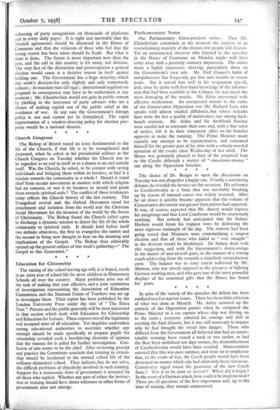Church Congress The Bishop of Bristol raised an issue fundamental
to the life of the Church, if that life is to be strengthened and deepened, when he asked in his presidential address at the Church Congress on Tuesday whether the Church was to be regarded as an end in itself or as a means to an end outside itself. Was the Church, he asked, to be content with saving individuals and bringing them within its borders, or had it a mission towards the community as a whole ? Should it stand aloof from secular movements as matters with which religion had no concern, or was it its business to mould and guide them towards spiritual ends ? The conflict of those tendencies today reflects the Church history of the last century. The Evangelical revival and the Oxford Movement stood for detachment and isolation from the world and the Christian Social Movement for the invasion of the world by the forces of Christianity The Bishop found the Church called t.pon to discharge a dynamic mission to direct the life of the whole community to spiritual ends. It should hold before itself two definite objectives, the first to evangelise the nation and the second to bring new thought to bear on the meaning and implications of the Gospel. The Bishop thus admirably opened up the general subject of this week's gathering—" The Gospel to this Generation."
* * * *














































 Previous page
Previous page